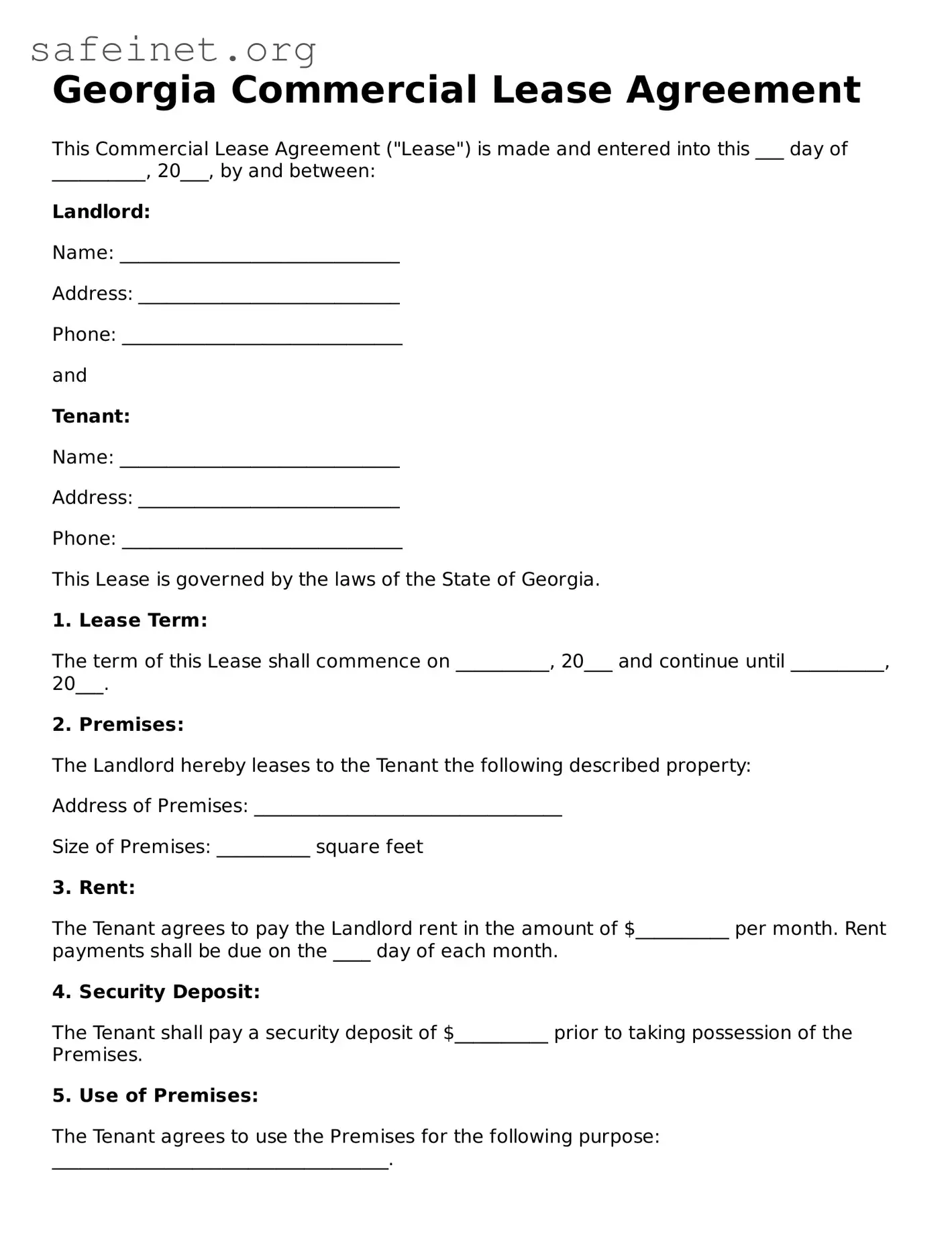What is a Georgia Commercial Lease Agreement?
A Georgia Commercial Lease Agreement is a legally binding document between a landlord and a tenant, outlining the terms under which the tenant can occupy a commercial property. It includes details such as rental payment, duration of the lease, property maintenance obligations, and specific rules governing the use of the space.
What key elements should be included in this agreement?
Typically, the agreement should clearly state the following: names of the parties involved, property description, lease term, rental amount and payment schedule, security deposit requirements, maintenance responsibilities, and conditions for termination. Additionally, any specific clauses relevant to the intended use of the property should be included.
Is a written agreement mandatory for commercial leases in Georgia?
Yes, while oral agreements can sometimes be valid, having a written lease is highly advisable in commercial real estate. A written contract provides clarity, minimizes disputes, and ensures both parties understand their rights and obligations.
How is the rental amount determined in a commercial lease?
The rental amount can vary based on several factors, including the market rate for similar properties in the area, the condition of the space, the length of the lease, and the nature of the tenant’s business. Negotiation between the landlord and tenant often plays a significant role in determining this figure.
What happens if the tenant wants to break the lease early?
If a tenant needs to terminate the lease before its expiration, they must refer to the agreement for specific terms regarding early termination. This may involve paying a penalty or fulfilling certain notice requirements. Each lease can have different stipulations, so it’s crucial to review the terms carefully.
Can the lease agreement be modified after signing?
Yes, modifications can be made, but they usually require written consent from both parties. It’s recommended to document any changes through an amendment to the original lease to maintain clarity and legal standing.
What are the rights of the landlord and tenant under the lease?
Landlords typically have the right to receive payment, maintain the property, and enforce lease terms. Tenants have the right to use the property as intended, enjoy possession without interference, and expect the property to be maintained in a reasonable condition. Both parties must adhere to the terms set out in the agreement.
Are there any regulations specific to Georgia that affect commercial leases?
Yes, Georgia has specific regulations governing commercial leases. For instance, the state allows for specific disclosures regarding the condition of the property and the responsibilities tied to property maintenance. Additionally, Georgia law outlines how security deposits and lease terminations must be handled.
What should a tenant do if they feel the landlord is violating the lease terms?
If a tenant believes their landlord is violating the lease terms, they should first document the issues and attempt to resolve the situation amicably. If the issue persists, the tenant may need to consult legal counsel or consider formal actions, such as mediation or, in extreme cases, pursuing a breach of contract lawsuit.
What resources are available for understanding commercial leases in Georgia?
Several resources can help tenants and landlords navigate commercial leases. These include local real estate attorneys, commercial real estate agents, and online legal resources. Additionally, the Georgia Secretary of State's website may provide information on relevant laws and regulations.
